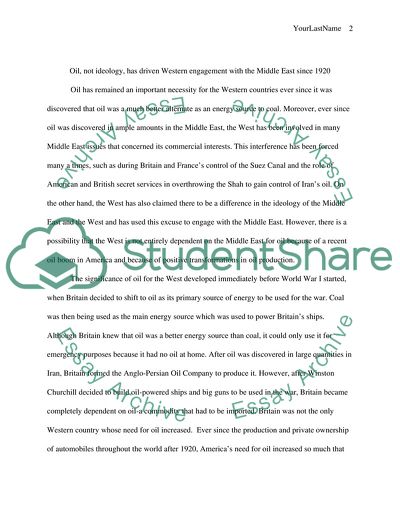Cite this document
(Oil, not Ideology, Has Driven Western Engagement with the Middle East Essay, n.d.)
Oil, not Ideology, Has Driven Western Engagement with the Middle East Essay. Retrieved from https://studentshare.org/history/1795695-oil-not-ideology-has-driven-western-engagement-with-the-middle-east-since-1920-discuss
Oil, not Ideology, Has Driven Western Engagement with the Middle East Essay. Retrieved from https://studentshare.org/history/1795695-oil-not-ideology-has-driven-western-engagement-with-the-middle-east-since-1920-discuss
(Oil, Not Ideology, Has Driven Western Engagement With the Middle East Essay)
Oil, Not Ideology, Has Driven Western Engagement With the Middle East Essay. https://studentshare.org/history/1795695-oil-not-ideology-has-driven-western-engagement-with-the-middle-east-since-1920-discuss.
Oil, Not Ideology, Has Driven Western Engagement With the Middle East Essay. https://studentshare.org/history/1795695-oil-not-ideology-has-driven-western-engagement-with-the-middle-east-since-1920-discuss.
“Oil, Not Ideology, Has Driven Western Engagement With the Middle East Essay”, n.d. https://studentshare.org/history/1795695-oil-not-ideology-has-driven-western-engagement-with-the-middle-east-since-1920-discuss.


